.png)

Belgium 10-3-26 All Members Physical english
From modular business design to AI-driven pipelines, architectures, and operationsA composable enterprise is built on modular processes, API-driven ecosystems, low-code platforms, and cloud-native services. It promises speed and adaptability by allowing organisations to reconfigure their capabilities as conditions change. However, modular design alone does not guarantee resilience; the way these systems are engineered and operated is just as important.This is where AI is beginning to make a difference. Beyond generating snippets of code, AI is already influencing how entire systems are developed and run: accelerating CI/CD pipelines, improving test coverage, optimising Infrastructure-as-Code, sharpening observability, and even shaping architectural decisions. These changes directly affect how quickly new business components can be deployed, connected, and retired.In this session, we will examine how CIOs can bring these two movements together:Composable design is the framework for flexibility and modularity.AI-augmented engineering is the force that delivers the speed, quality, and intelligence needed to sustain it.The pitfalls of treating them in isolation: composability that collapses under slow engineering cycles, or AI that only adds complexity without a modular structure.The discussion goes beyond concepts to practical implications: how to architect organisations that can be recomposed at speed, without losing control or reliability. The outcome is an enterprise that is not only modular in design but also engineered to adapt continuously under real-world conditions.
Read More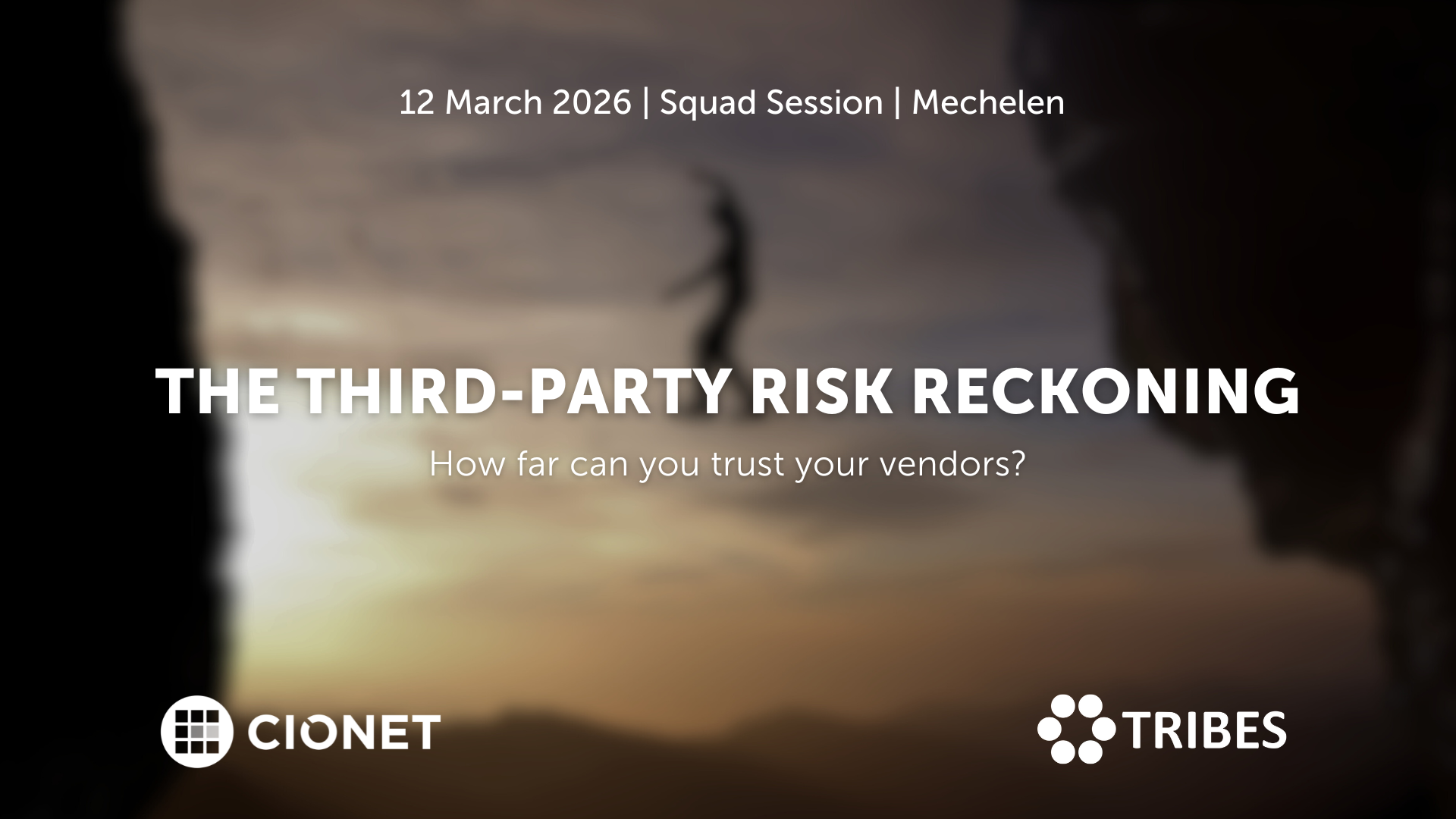
Belgium 12-3-26 Physical english
Tomato! Tomato! Tomato! Get your tomato now! Every vendor sells security. And every company depends on vendors, partners, and suppliers. The more digital the business becomes, the longer that list grows, and so does the attack surface. One weak link, and there is always one, or one missed update, and trust collapses faster than any firewall can react. What used to be a procurement checklist has become a full-time discipline. Questionnaires, audits, and endless documentation prove that everyone’s “compliant,” yet incidents keep happening. So it’s clear: the issue isn’t lack of policy, or maybe a bit, but mostly lack of visibility. Beyond a certain point, even the most secure organisation is only as safe as its least prepared partner (or an employee who hadn’t had their morning coffee). So how far can you trust your vendors? How do you check what you can’t control? And when does assurance become theatre instead of protection? Does it come at a different cost? Let’s exchange what works and what fails in third-party risk management: live monitoring, shared responsibility models, contractual levers, and the reality of building trust in a chain you don’t own. A closed conversation for those redefining what partnership means when risk is shared but accountability isn’t.
Read More.jpg)
Belgium 19-3-26 Country Members Physical french
Moins de Partenaires : La consolidation vaut-elle le risque ? Le problème est la prolifération des fournisseurs : trop d'outils causant de la complexité, une taxe d'intégration paralysante et de la redondance. La Taxe d'Intégration est le coût caché (en temps, en échecs et en ressources) d'essayer de faire fonctionner ensemble des systèmes disparates. Cet échange se concentre sur des stratégies éprouvées pour simplifier de manière agressive le parc technologique, consolider les fournisseurs et élever certains fournisseurs clés au rang de partenaires stratégiques.
Read More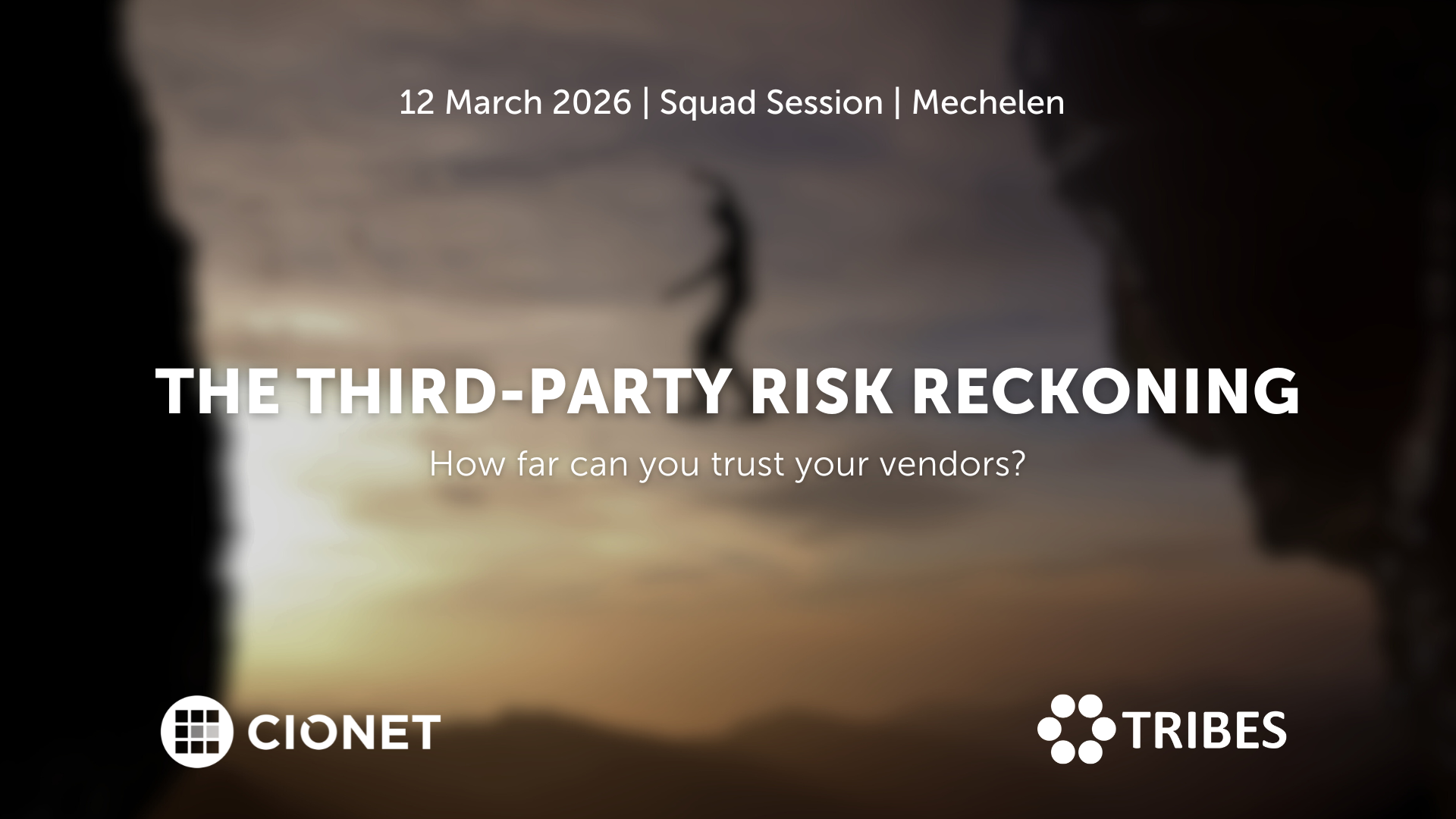
March 12, 2026 Squad Session Invitation Only Physical english
Tomato! Tomato! Tomato! Get your tomato now! Every vendor sells security. And every company depends on vendors, partners, and suppliers. The more digital the business becomes, the longer that list grows, and so does the attack surface. One weak link, and there is always one, or one missed update, and trust collapses faster than any firewall can react.
Read More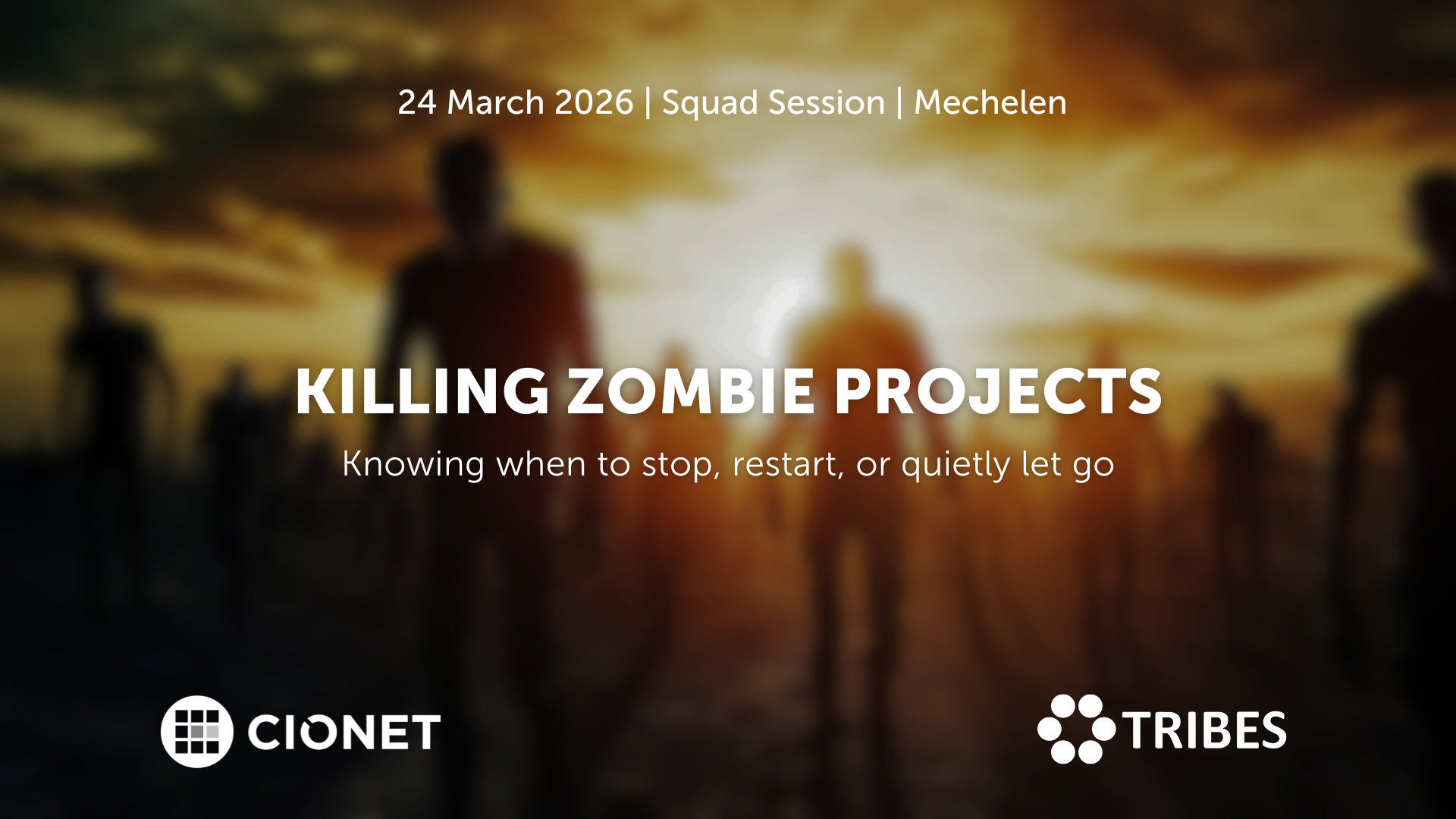
March 24, 2026 Squad Session Invitation Only Physical english
Every organisation has them, projects that keep running long after their purpose has faded. No one remembers who asked for them, but shutting them down feels riskier than keeping them alive. And eventually, people stay assigned, budgets stay allocated, and energy drains into work that no longer matters. Inertia at its finest.
Read More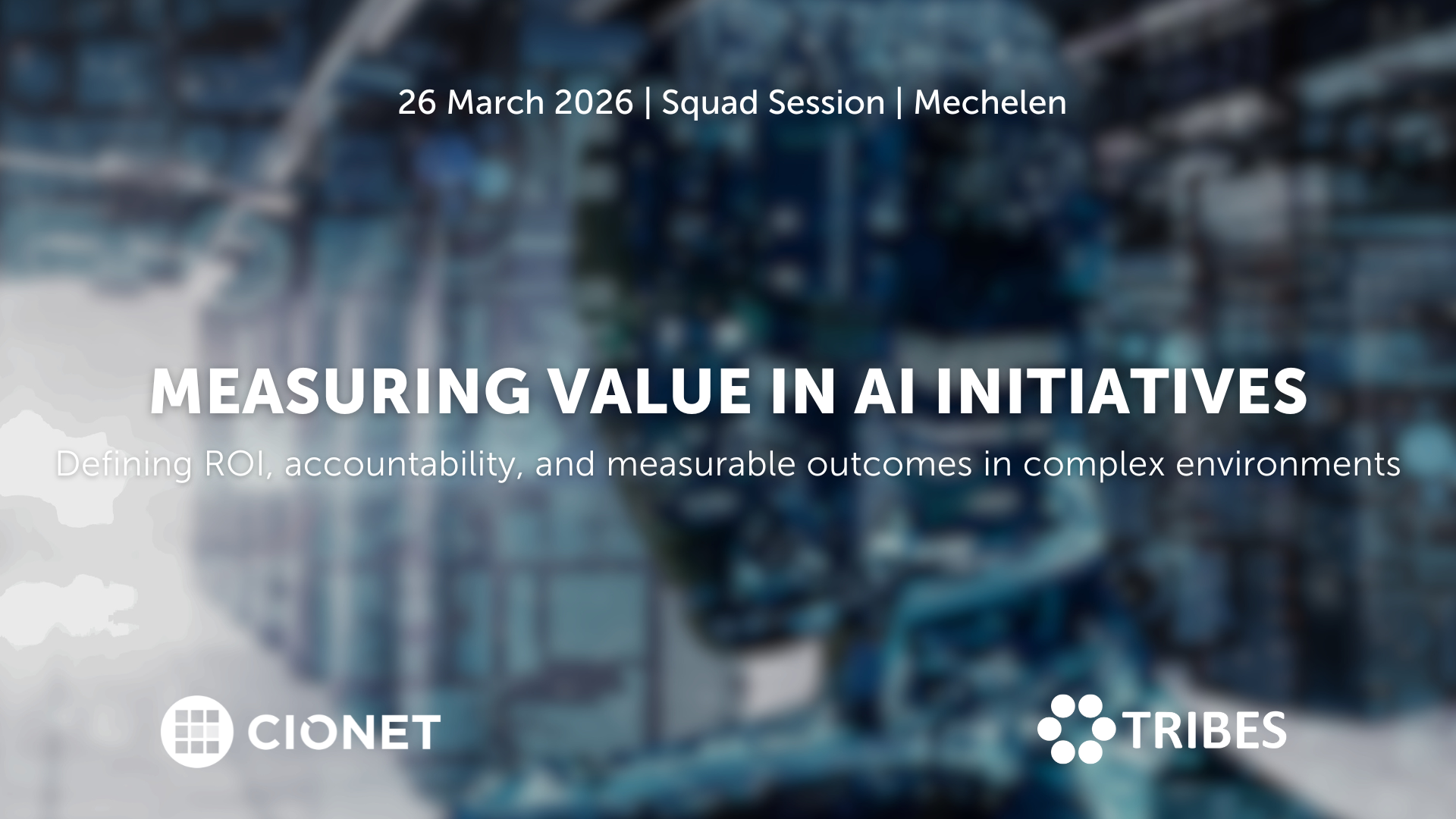
March 26, 2026 Squad Session Invitation Only Physical english
AI projects continue to multiply, but proving their value remains difficult. Most organisations can track activity, not impact. Dashboards count pilots and models, yet few translate to measurable business outcomes. The result is familiar: success stories without clarity on what they actually delivered.
Read More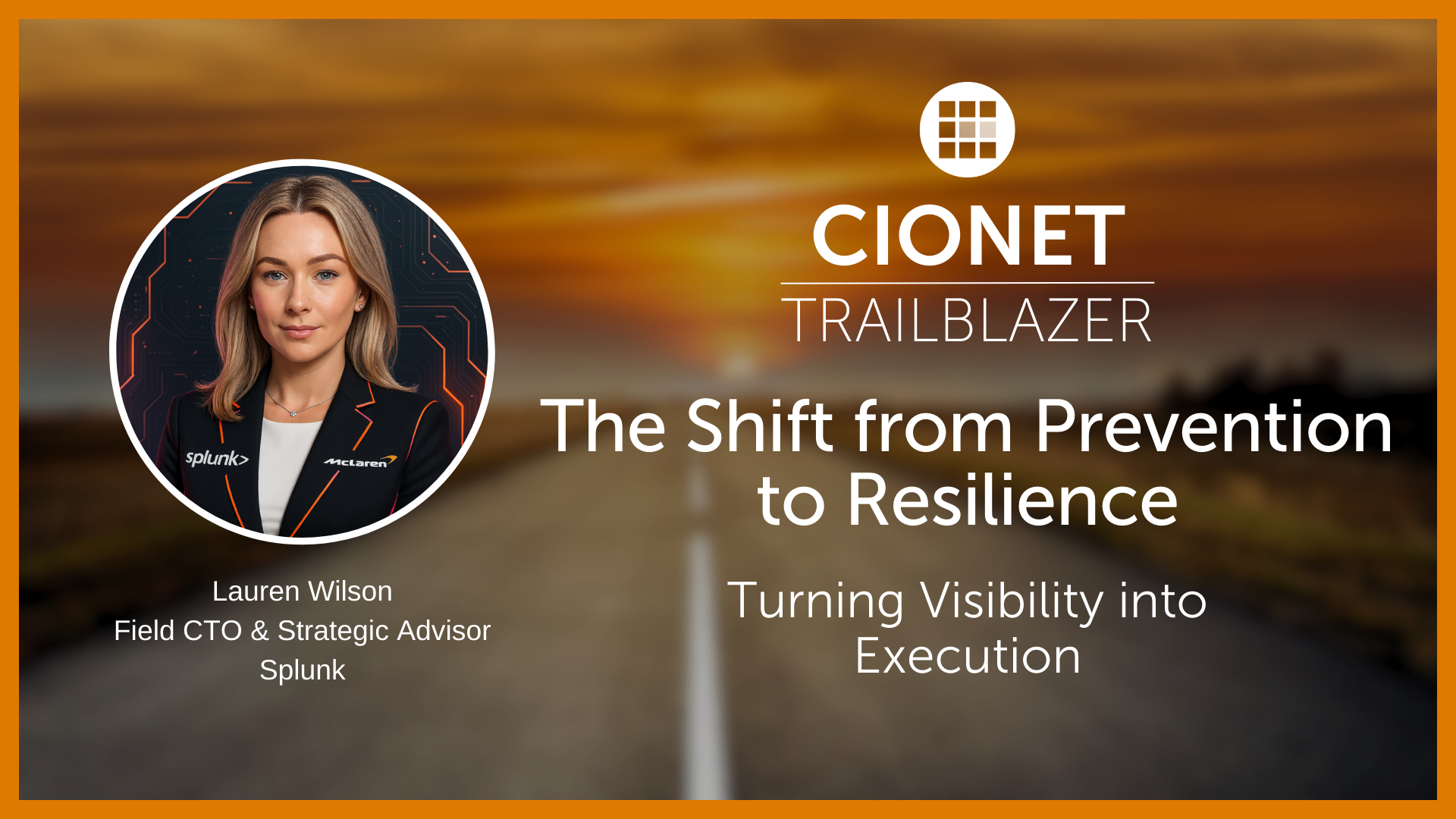
CIONET Trailblazer: CISO: The Shift from Prevention to Resilience: Turning Visibility into Execution
Published on: January 28, 2026 @ 9:48 AM
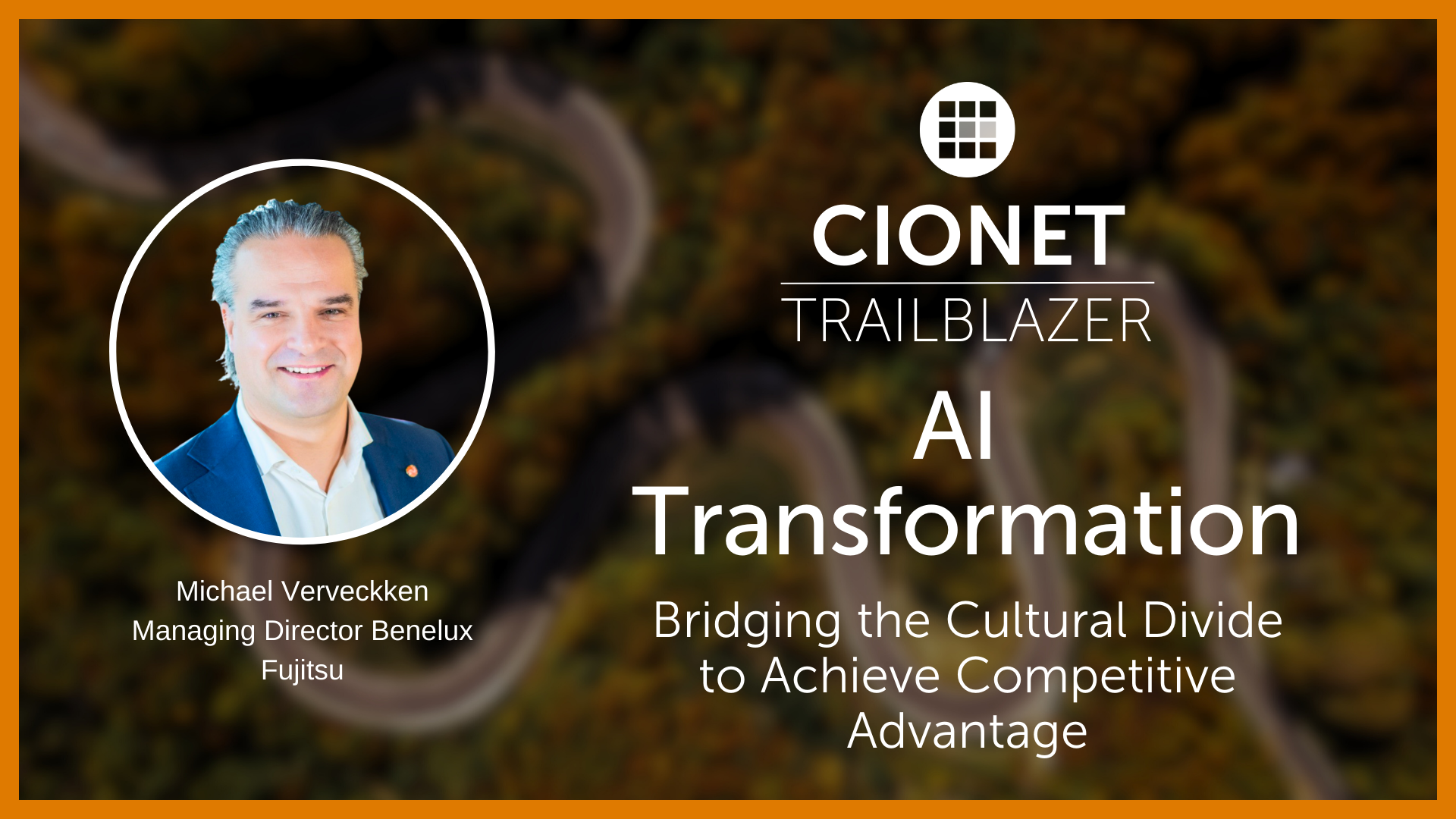
CIONET Trailblazer: AI Transformation: Bridging the Cultural Divide to Achieve Competitive Advantage
Published on: December 17, 2025 @ 9:16 AM
Color Health uses the reasoning capabilities of GPT-4o to help doctors transform cancer care.
Color Health is working with OpenAI to pioneer a new way of accelerating cancer patients’ access to treatment. Their new copilot application uses GPT-4o to identify missing diagnostics and create tailored workup plans, enabling healthcare providers to make evidence-based decisions about cancer screening and treatment.
Color has been working to improve access to healthcare for a decade, serving more than 7 million patients since it was founded. In 2023, they partnered with the American Cancer Society to help employers and health plans take control of cancer—the second most common cause of death in the United States and the leading driver of American healthcare costs.

Color Health uses OpenAI’s APIs to integrate patient medical data with clinical knowledge. The outcome is a copilot application that creates customized, comprehensive treatment plans for providers to review and use in their patient care.
“Color’s vision is to make cancer expertise accessible at the point and time when it can have the greatest impact on a patient’s healthcare decisions,” says Othman Laraki, CEO of Color Health.
"As a healthcare company, technology that improves access and equity has to go hand-in-hand with technology that supports patient safety and privacy. OpenAI's HIPAA-compliant data protection standards are key."
The copilot application’s output is analyzed by a clinician at every step and, if need be, modified before being presented to the patient. It works as follows:
It extracts, processes, and normalizes patient information, such as family history and individual risk factors, along with clinical guidelines and data from trusted sources. The Color team was particularly impressed with GPT-4o’s ability to extract and normalize information that was buried within pages of inconsistently structured and phrased information, often in different formats, such as with PDFs or clinical notes.
Using this data, it answers key questions like, “What screenings should the patient be doing?” to identify missing diagnostics and generate a personalized screening plan. It also generates documentation required to complete any diagnostic workups, such as medical necessity documents and insurance pre-authorizations.
The clinician-in-the-loop evaluates the output, which includes source information. The clinician can edit the copilot’s output, which also helps refine future iterations.
Once the clinician-in-the-loop is satisfied with the result, they can add the information to the patient’s existing treatment plan.
Screening, diagnosis, and treatment for cancer is notoriously complex and time-consuming. And every delay makes a difference: patients whose treatments are delayed by just four weeks face a 6–13% higher risk of mortality(opens in a new window).
Screening needs are also often highly individualized. More than a third of Color’s patients, for example, require earlier, different screening approaches based on individual risk factors not addressed by standard guidelines. “I've witnessed the complexities of developing personalized cancer screening plans for my high-risk patients,” says Dr. Keegan Duchicela, a primary care physician at Color. “The guidelines are constantly evolving, and individual risk factors aren't always immediately clear.”
Beyond screening, diagnostic workups create more challenges. Documenting and performing a single patient’s diagnostic workup can take weeks, with the majority of patients arriving at their first oncology appointment without a complete workup. “Today, there are real gaps in oncology care based on where a patient receives initial diagnosis,” says Dr. Allison Kurian, a professor at Stanford University School of Medicine and clinically active oncologist. “Many of my patients require weeks to complete all of the tests and evaluations necessary to provide appropriate treatment, during which precious time is lost and additional administrative burden is placed on clinicians.”
Color began working with OpenAI in 2023, with the goal of using AI to improve cancer patient care and health equity. With the challenges of cancer screening, diagnosis, and treatment in mind, Color was looking for a solution that could:
Interpret inconsistently-formatted patient data
Analyze dense healthcare guidelines
Protect patient data privacy
Support clinician-in-the-loop workflow design to ensure patient safety
Integrate with electronic health records (EHRs) and core hospital systems
During initial exploration, Color set up their approach for rapid experimentation, including testing the performance of GPT-4 and GPT-4o in complex tasks such as extracting information from PDFs of clinical guidelines for cancer diagnosis. These PDFs are often hundreds of pages of complicated diagrams that outline care paths based on diagnostic workup. Together, OpenAI and Color developed a method of asking GPT-4 Vision to describe screenshots of these diagrams that was most effective in maintaining output accuracy.

OpenAI also helped guide the Color team to prototype clinical workflows using the standard ChatGPT interface and generate sample cases using a custom GPT–gaining effective proofs of concept before committing extensive engineering resources.
With OpenAI’s expert guidance, powerful models, and HIPAA-compliant data protection standards, Color was able to focus on deconstructing complex medical decision-making, refining prompts, and designing clinician-in-the-loop workflows to create the initial version of the copilot.
For example, OpenAI engineers guided Color to use retrieval-augmented generation (RAG) instead of model fine-tuning to increase output quality and rewrite clinical documentation for easier processing by ChatGPT. Ultimately, after experimenting, Color selected OpenAI as its AI solutions provider, with GPT-4o at the core of its cutting-edge copilot application.
To measure the impact of this tool, Color is partnering with the University of California, San Francisco Helen Diller Family Comprehensive Cancer Center (UCSF HDFCCC). For the initial implementation, Color and UCSF will conduct a retrospective evaluation, followed by a targeted rollout. Based on the evaluation, there is potential to integrate the copilot into clinical workflows for all new cancer cases at UCSF.
“UCSF is a leader in implementing cutting-edge technology to improve patient care,” says Dr. Alan Ashworth, PhD, FRS, President of the UCSF HDFCCC. “Patients frequently come to primary oncologists with incomplete diagnostic workups, and the time it takes to collate and accurately identify the completion of those workups prevents providers from working at the top of their license. We are interested in tools that can improve the efficiency and accuracy of pre-visit charting and avoid costly delays in treatment initiation for cancer patients at UCSF.”
Dr. Karen Knudsen, CEO of the American Cancer Society, agrees. “The idea of combining AI technologies with digitally-enabled clinical workflows to expedite that process would be a positive advancement for all parties involved - the patient and their clinicians, as well as the payer covering the cost of treatment.”
Color is taking a measured approach in rolling out the copilot, and has started an initial phase-in for its own clinicians, applying the tool to a limited number of cases. These cases receive several layers of quality assurance:
Healthcare providers using the copilot are able to identify 4x more missing labs, imaging, or biopsy and pathology results than those without the copilot.
Using the copilot, it takes on average 5 minutes for clinicians to analyze patient records and identify gaps. Without the copilot, data is fragmented and can lead to weeks of delay.
Through the second half of 2024, Color intends to use the copilot application to provide AI-generated personalized care plans, with physician oversight, for over 200,000 patients.
643 Views 0 Likes Read More
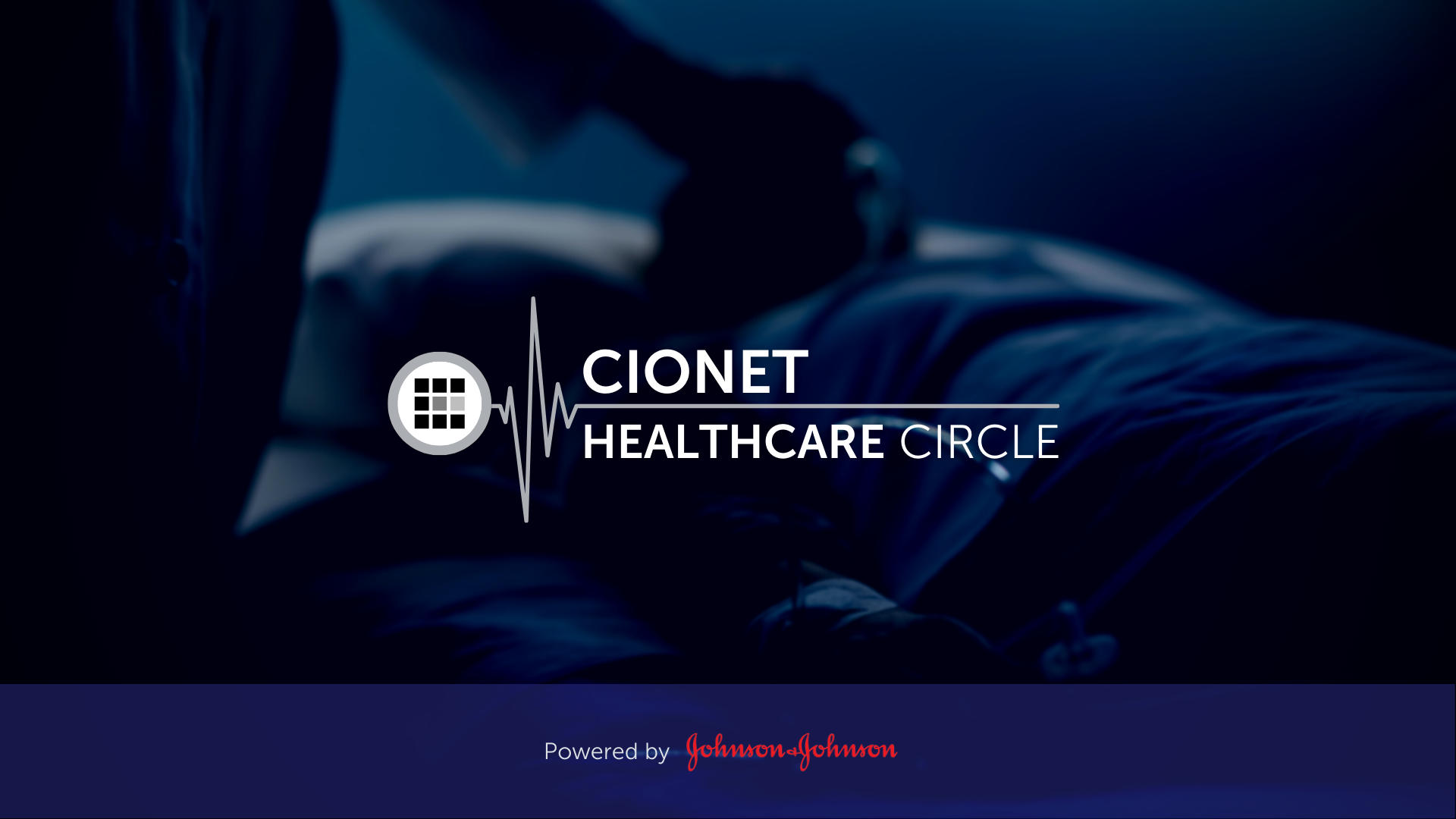
Digital Transformation is redefining the future of health care and health delivery. All stakeholders are convinced that these innovations will create value for patients, healthcare practitioners, hospitals, and governments along the patient pathway. The benefits are starting from prevention and awareness to diagnosis, treatment, short- and long-term follow-up, and ultimately survival. But how do you make sure that your working towards an architecturally sound, secure and interoperable health IT ecosystem for your hospital and avoid implementing a hodgepodge of spot solutions? How does your IT department work together with the other stakeholders, such as the doctors and other healthcare practitioners, Life Sciences companies, Tech companies, regulators and your internal governance and administrative bodies?
Read More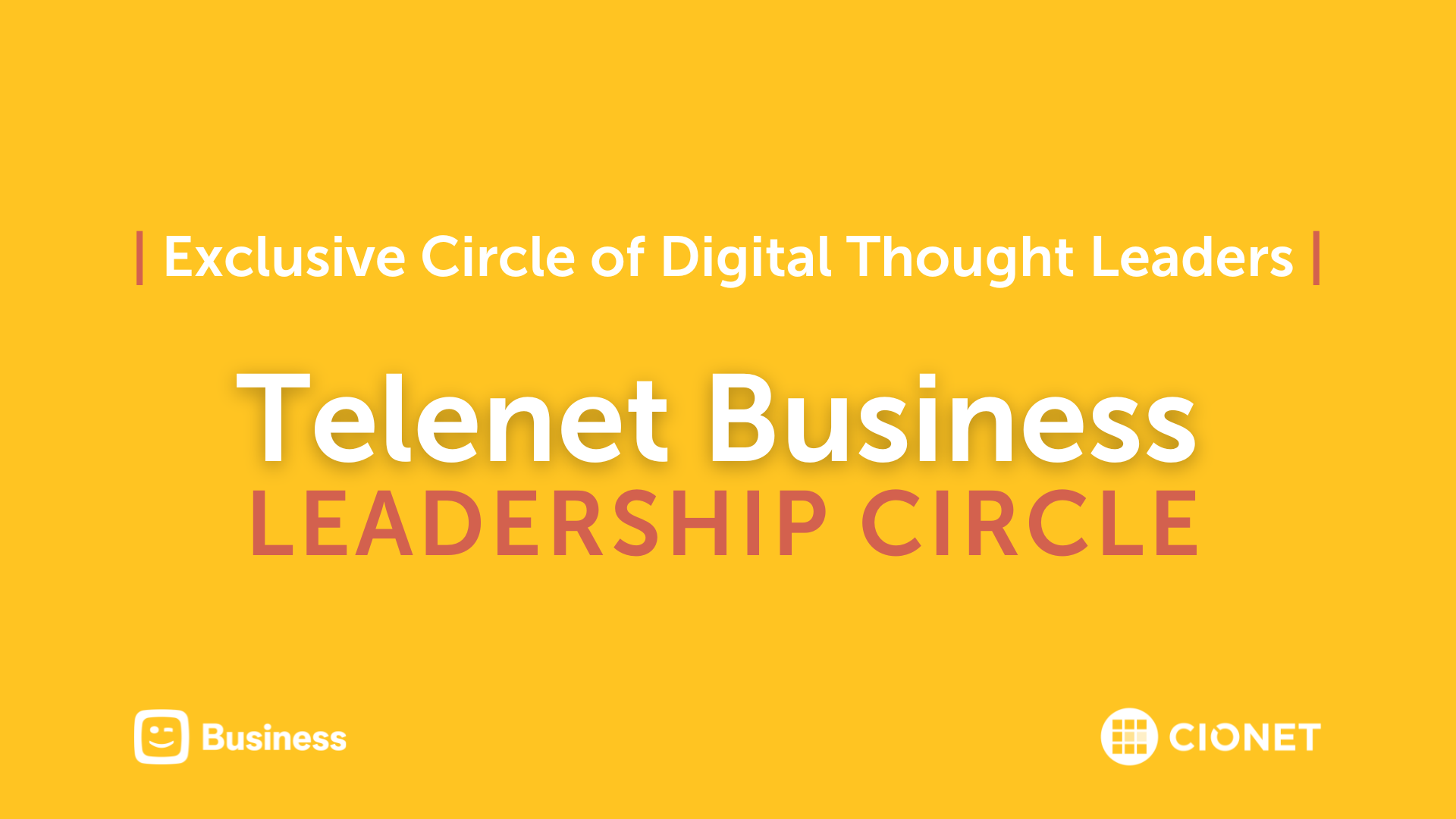
The Telenet Business Leadership Circle powered by CIONET, offers a platform where IT executives and thought leaders can meet to inspire each other and share best practices. We want to be a facilitator who helps you optimise the performance of your IT function and your business by embracing the endless opportunities that digital change brings.
Read More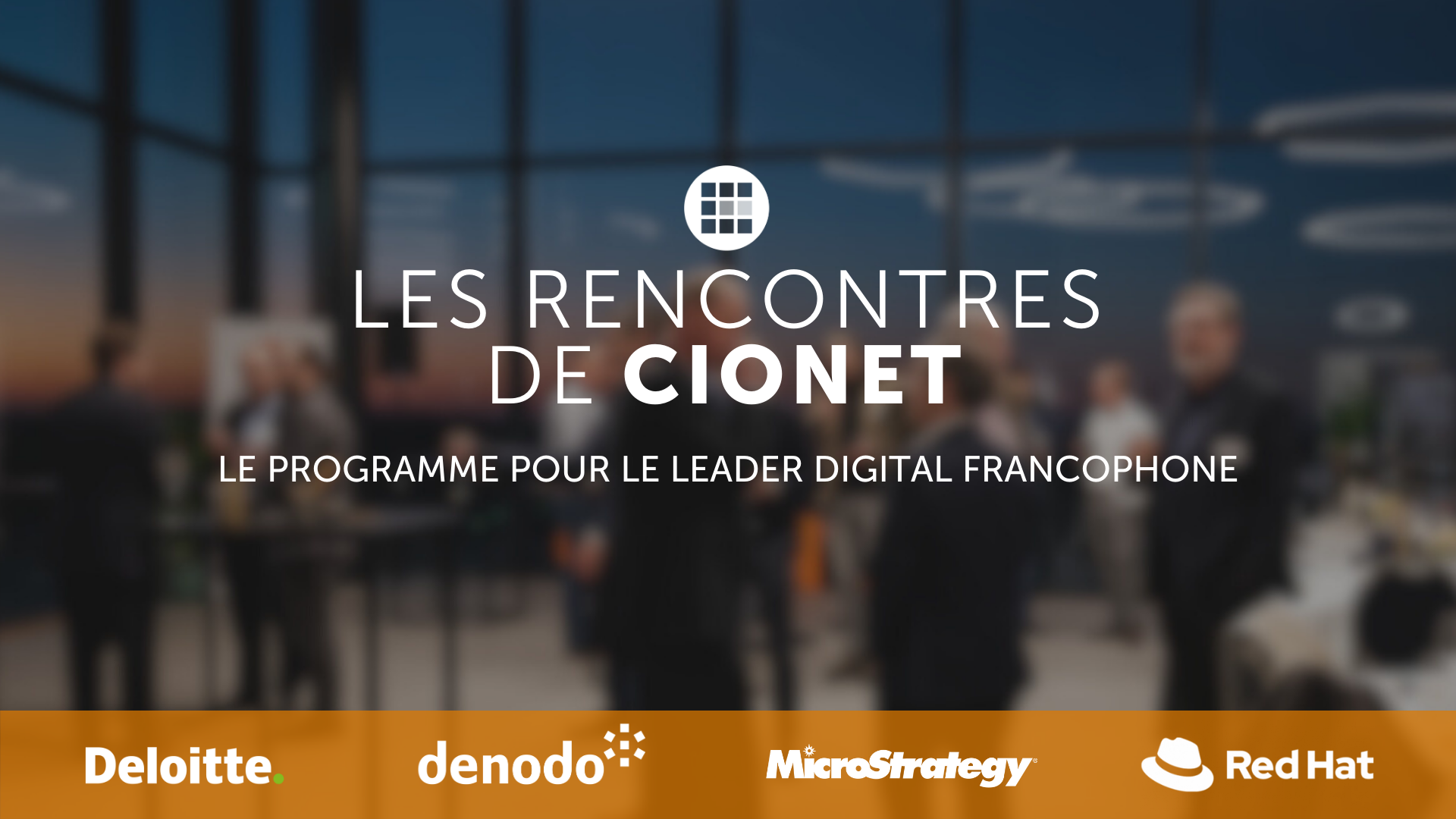
Découvrez la dynamique du leadership numérique aux Rencontres de CIONET, le programme francophone exclusif de CIONET pour les leaders numériques en Belgique, rendu possible grâce au soutien et à l'engagement de nos partenaires de programme : Deloitte, Denodo et Red Hat. Rejoignez trois événements inspirants par an à Liège, Namur et en Brabant Wallon, où des CIOs et des experts numériques francophones de premier plan partagent leurs perspectives et expériences sur des thèmes d'affaires et de IT actuels. Laissez-vous inspirer et apprenez des meilleurs du secteur lors de sessions captivantes conçues spécialement pour soutenir et enrichir votre rôle en tant que CIO pair. Ne manquez pas cette opportunité de faire partie d'un réseau exceptionnel d'innovateurs numériques !
Read More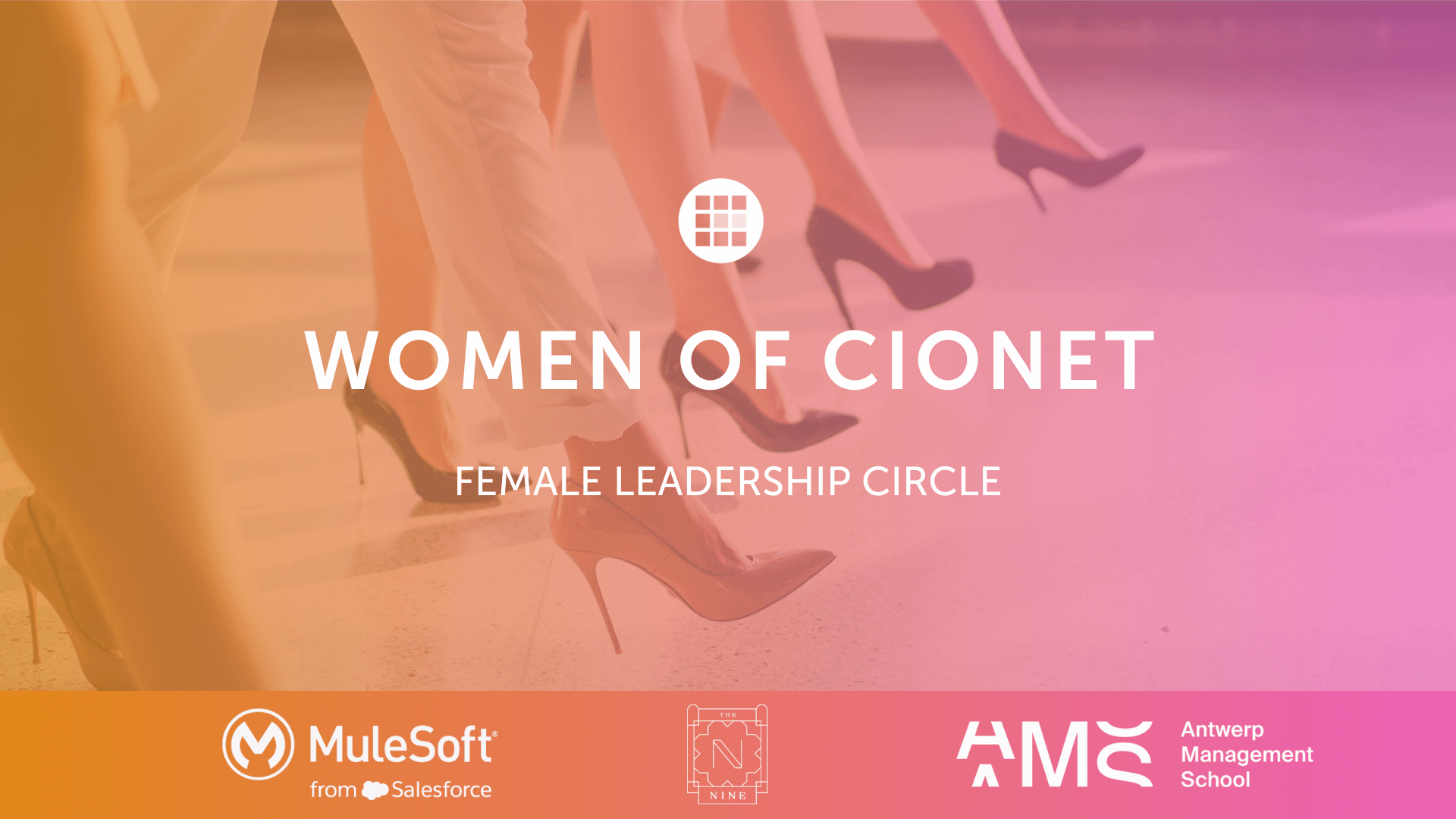
CIONET is committed to highlighting and celebrating female role models in IT, Tech & Digital, creating a leadership programme that empowers and elevates women within the tech industry. This initiative is dedicated to showcasing the achievements and successes of leading women, fostering an environment where female role models are recognised, and their contributions can ignite progress and inspire the next generation of women in IT. Our mission is to shine the spotlight a little brighter on female role models in IT, Tech & Digital, and to empower each other through this inner network community.
Read More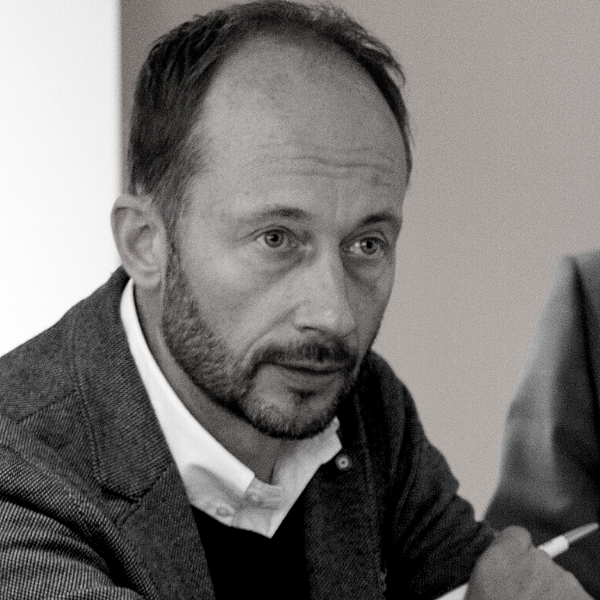


-Apr-01-2022-10-58-34-57-AM.png)









-Dec-13-2023-10-53-15-5032-AM.png)



-Jun-12-2023-01-23-11-7540-PM.png)

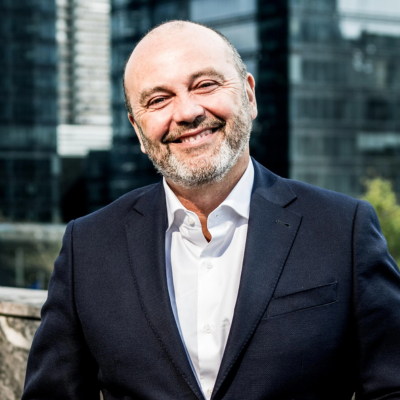


-Apr-01-2022-10-58-34-68-AM.png)






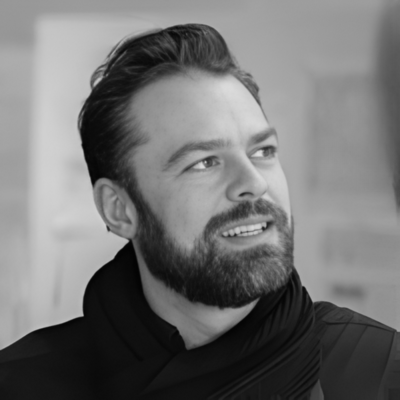

.png)









-Sep-01-2022-02-47-55-60-PM.png)
-Nov-22-2023-08-56-42-6802-AM.png)
.png)

Would you like to know more about CIONET Belgium, membership or partnership opportunities? Do you have feedback or any other question? Send us a message!
You can either send us a registered handwritten letter explaining why you'd like to become a member or you can simply talk to us right here!